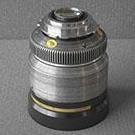Leaderboard
Popular Content
Showing content with the highest reputation on 12/01/2014 in all areas
-
Look Stab you are exactly the person that you are worried about. I don’t post much on the internet but this idea is so misguided I had to come out and say something. I’ve been in the business for 14 years now and I thought that with FCP v2 and miniDV as a tape format the industry would explode within 2 years and belatedly it has, but not how I expected it to. It was DSLR’s that really changed the game. No one is transferring film to miniDV so they can cut film jobs in FCP, people are now shooting with digital negative! The Blackmagic cameras are absolutely amazing because they are giving people digital negative for less than what we used to pay per hour to grade film negative. We used to pay $1,400 an hour to grade negative in a DaVinci suite but now resolve is free. The burden is on operators and artists to add the value. Now that everyone is shooting digital negative we have added a grading suite to our post house and we bill ‘only’ $1,000 and hour to grade jobs. We have one of Australia’s most sought after colourist in our employment and they are busy, even at $1,000 an hour. Any director or DOP can now grade their own jobs in the same software we use (for free I might add, you don’t really need the desk) but the top end directors and DOP’s understand the value a professional colourist brings to the job. Our colourist’s are happy to share their tips and tricks with me, an editor, but also our assistants or anyone that wants to know because their unique skill and mastery of their craft will keep them in demand even if I were to leave and offer grading at half the price. A lot on people new to the industry find the Blackmagic raw footage difficult to deal with because that have never graded actual negative or dealt with a digital negative work flow. Everyone just chucks on a LUT and called it a day while a real colourist can dial in any look you want, live, with clients in the room and match the look between all the shots. Experience is where the values is and everyone I know shares their experiences. Some of the advice offered on the web is incorrect or misguided but its amazing what someone like Shane Hurlbut shares for nothing. I’m sure his paid subscription is amazing but you can lean pure gold from him for free. A influx of “new kids†to the business offering services at a significant discount to us is going to erode our profitability. They/You (Stab) already have. As richg101 said a lot of these people do a shocking job and won’t get rehired but we still suffer because clients demand we cut our rates to compete. Sure we’re delivering jobs shot on Alexa with Cooke S5’s professionally graded from the camera RAW, at a quality that is the same as when we worked with 35mm, but something shot on a 5D roughly graded from the h.264 looks 90% as good (sometimes 99.9%). Most clients can’t tell the difference and don’t want to pay the difference. I’m not complaining, in fact this has been great for me on personal level because I’ve been able to get my personal projects up to the same quality as my professional ones. Professionally I’ve never been busier. Sure budgets are dropping but there is more work than ever before, with the web there is a much higher demand for video content at every level. I’m always going to share all of my secrets because we all learn together, I’ve learnt a lot about DSLR’s and the like from the people on this site (respect ANDY LEE) and I really appreciate it. I’ve just started my own blog to share my knowledge with people other than my assistants and to help me solidify the lessons I’ve learnt from my professional experience. People I’ve worked with and helped are now all over the world working in different parts of the business. I helped an friend get his head around the basics of shake and now he’s VFX artist at D-Neg having worked on the latest Avengers movie. An ex-assistant is the post supervisor for a company that cuts both movies and TV series work, she’s a good friend and back in the day I helped her and I know she’d do the same for me if I so required. This business is all about the connections you make because you really never know where the next job will come from. If you turtle up and withhold knowledge why should anyone share their knowledge with you, or hep you when you need it? There is no problem sharing your knowledge with others it makes you a better artist as you debate different ideas, experiment together and get inspired by others creativity. Stab you seem to have experience behind you so don’t worry about the new kids just worry about the next job. I always wonder how I can make the next job so amazing that people will be beating down my door just to work with me. Experience means your next job is better than your last so just think of the head start you have. You have the head start of experience so please help new people learn the ropes, others have done it for you so don't turn you back on the film making community.2 points
-
I knew a screenwriting teacher at UCLA that told me confidentially he wished he'd gone to USC as an undergrad, not because it was better than where he studied, but because he would have had better contacts. One catch, you need to be rich!2 points
-

Does Cinema EOS mark the end of high spec Canon DSLR video?
JazzBox and one other reacted to Cosimo murgolo for a topic
maybe you should see this clip too, I think it's ok, don't you? I like it. I think that in the right hands any camera can be a good weapon. Ciao! ;)2 points -

Zoom Angenieux 15-150 C-mount T3.1 f2.8 on UHD GH4, no crop
Matthias Malleši� reacted to Sebastien Farges for a topic
Zoom Angenieux 15-150 C-mount T3.1 f2.8 on UHD GH4, no crop Zoom Angenieux 15-150 "type 10 x 15b" C-mount T3.1 f2.8, always used wide open on this movie Shot on GH4 24p UHD 3840x2160 200 ASA Run and gun style No crop Cinelike D mode -2 -5 -5 -5 0 Edited on Adobe Premiere CC, with Lumetri Cinematic 2 color effect1 point -

I told you CANON would come again
Juan Le reacted to Andrew Reid for a topic
At this rate Canon will catch up with a 2 year old Nikon sensor. 7D Mark II at DPReview on the studio scene is behind the D7100 (2 years old), 5D Mark III, Fuji X-T1 and Samsung NX1 for all aspects of image quality. And the sensor in the G1 X Mark II is behind the Panasonic LX100 and Sony RX100 Mark III in all aspects of the image http://www.dxomark.com/Reviews/Panasonic-Lumix-DMC-LX100-sensor-review-Potent-point-and-shoot/Panasonic-Lumix-DMC-LX100-vs-Canon-PowerShot-G1-X-Mark-II-vs-Sony-Cyber-shot-DSC-RX100-III-Tradeoff-in-performance-against-smaller-Sony-sensor Canon are said to be working on a dual ISO sensor with alternating pixels at low and high ISOs to extend dynamic range. The 5D Mark III already has an alternating line technique for this but Canon didn't implement it. Magic Lantern did but only unofficially. I think Canon will definitely take a step in 2015. The question is... will it be a catch-up step or a revolution?1 point -
https://www.dropbox.com/sh/a86l8cq9vzio1gn/AACpiLt-1sPRWSie1nWFR9zRa?dl=0 6 shots. just jpg's. full frame 36mpx. first 3 images show centre performance at:- f1.4, f2. and f2.8 the final 3 images also show f1.4, f2 and f2.8 chart was approximately 2.5mtrs away. No focus adjustment between the centre and the corner sharpness shots flare isnt aligned since I had to tape the cinelux to the planar due to not having a suitable step ring to hand.1 point
-
I like it! But I prefer to work with Panasonic G6 over a 5D MkIII 95% of the times. It's a matter of taste, of course there is not a perfect camera that fit all works. Last week I worked with a Canon 60D because the DOP that called me has that and did not want to use my camera. Other times I worked with a 5DMkII and MkIII, I had a T3i and a 70D... I admit I like Canon's menu better then Panasonic, but I like Panasonic image better then Canon because it's sharper and 60p in 1080 is something I use often. With Panasonic I have a better quality in handheld shots thanks to the smaller body, I can use lot of lenses (FD are superb)... I have the EVF and the focus peaking... it's something I cannot work without.1 point
-

Does Cinema EOS mark the end of high spec Canon DSLR video?
Cosimo murgolo reacted to Andrew Reid for a topic
I should give up the reviews and just say that! Would be much easier!1 point -
And specially if you live in Canada film schools here are shit. i went to best film school that Canada has to offer took a loan and teachers are exactly what you said nobody was working in any industry but they head some rellyyyyyyyyyyy kick as facilities and equipment in that school and they wore sponsored by avid and panavision, and when you get out of that school good luck getting a job in any field that is production or post production. Because here its such a small industry. When i think of it they did have a super awesome animation courses pixar and sonny would come and recruit maybe i should have taken animation ohhhhh well Shit all that post production shit you can learn now over you tube or 500 dollars worth of training dvds.1 point
-
Richg101, could you post some 36mp samples with a 85 1.4?1 point
-
I told you CANON would come again
Daniel Acuña reacted to zenpmd for a topic
My post wasn't meant to be entirely serious dude. Chillax1 point -
Does Cinema EOS mark the end of high spec Canon DSLR video?
Cosimo murgolo reacted to dafreaking for a topic
1 point -
Here's another pro tip: Never make gear purchases this close to a shoot. You never know what hiccups you can run into.1 point
-
I told you CANON would come again
Nick Hughes reacted to Inazuma for a topic
Rumors have been pretty sketchy recently. The OMD em1 thing, the overinflated 7d mk ii, the zero rumours about an a7 with 5 axis.1 point -
Film Schools
Jbells123 reacted to SleepyWill for a topic
A hackneyed old trope that I suggest is not true in 99.999999999% of teachers, lecturers and professors - believe it or not, there are some people who educate because they love to educate, because they love the working environment, get real job satisfaction from helping kids and because they are sick of associating with the type of scumbags who inhabit the industry who have no qualms about, say, taking advantage of an inexperienced person, trying to persuade them to work for free whilst showing them nothing more than how to work a coffee machine. They are certainly not doing it for the money, prestige, low working hours or ease, I can promise you that! If you do choose to work for someone for free, be really, really careful. All that being said, be really careful about choosing a film course, there are plenty of really bad ones and very few good ones and don't expect to come out bustling with contacts and a relevant portfolio, you almost certainly wont.1 point -
as with most schools, the people teaching are quite often the ones who never made it in the real world. If they had done, they'd be on set rather than taking the money from people who don;t know better. Obviously this is a generalisation, but unless you're being taught by someone who actually has some proper background, don;t pay a penny! put the money in the bank, and live off it while working for free in the real world in a decent place with real people.1 point
-
My Isco Ultrastar is also sharper edge to edge than the Isco 36. LOTS of resolution! And from what I've been able to judge on sample shots - it seems like the cinelux resolves far more than the Ultrastar. And Andy keeps on calling the cinelux the "king", and I guess he's tried a few :)1 point
-
Film Schools
IronFilm reacted to pablogrollan for a topic
Academic education is paramount in filmmaking. Any of those names that supposedly didn't go to film school actually did. Just, not the kind of school that gives you a degree in the end. Many succesful directors and cinematographers have built a career without going college or any "formal" film school. You can skip it if you read tons of books, attend seminars and experiment a little. You need to crawl before you walk, let alone run... Nowadays you can get the education without going to school (the Internet has made available many study programs an bibliographies that can serve as a guide), but you need to get the education anyway!! Making a feature with that money would probably a waste of money (one that I've seen more than once). Taking time to study and learn, and then spend money on some film (preferably not a feature) would be more sensible. I've been working for almost 20 years and you can easily tell the difference between the formally trained professional and the self-taught through experience. The latter is a one-trick pony, effective in his/her task but easily confused when taken out of his/her comfort zone. You see, the thing is that not only should you know HOW to do a task, but also WHY is that task performed in a specific way. The phrase "because it's always been done that way" or "that's way everyone does it" is sadly quite common and reveals a professional with shallow knowledge and little ground for improvement or evolution. Some gaffers will always be gaffers and some get to be DPs. And it's not beacuse of their "talent", that's a made up word which means "lots of hard work, perseverance and continuous study". Get some vast base -not basic- knowledge, either going to school or by your own means, watch and analyse as many films as you can and then go on screw up some minor production. If you've done the former, you'll be able to know why you failed and learn from your mistakes instead of repeating them systematically. And ten years from now you won't have to watch the expensive pile of crap that you shot when you were not ready. I don't mean to offend anyone or be patronising, but I've seen that mistake made so many times... and not once have I seen anyone spend their "college money" on a feature that was even watchable. And the worst thing is that not even they knew why it was so bad.1 point -
Yes and no. The only real difference between the BMPCC and the GM1 is that the BMPCC has peltier cooling around the sensor, and the circuitry, allowing it to dump up to 30 frames a second of RAW sensor data, either as DNGs, or compressed into ProRes. That means you can make it look more "film like" if you want, because you're dealing with 12-bit depth frames, but you can also do what the GM1 does in camera before writing to the card, make it 8 bit with about 6-8 stops of DR. Keep in mind, the BMPCC has as hard a workflow, and focus gotchas, as the GM1 has as easy a workflow and good autofocus. Others can chime in here, but I have a radical idea for you. Shoot your A-cam the GM1 and make the BMPCC the backup. I say this because I worry, if you don't have a lot of experience, that you may not be able to grade the BMPCC to something you like. It's true that it gives you a lot more flexibility in post, but can also be unforgiving if you don't expose it correctly. What I LOVE about the Pannys is they give me good video in idiot mode. Not true with the BMPCC. On the lights, you should know that all lights have CRI rating, that is, how even they illuminate each color. I don't have much experience with LEDs, but I believe you would get better food color from quartz-halogon than LED. LEDs are better these days, but I'd be wary. These are things working DPs can work around. Seems you're dealing with a lot of unknowns. Maybe use the BMPCC for the food shots where the color depth may help (and you can take your time) and use the GM1 for the people scenes and long-shots where people are impatient.1 point
-
Sergio Leone was doing Techniscope 2 perf on Spherical lenses back in the 1960s - poor mans anamorphic - this is just the modern verion of that . Its a common process going right back to the first digital films , even the stuff shot on the Thompson Viper by Fincher like Zodiac 10 years ago was 2.40 extract ..... just Fincher is pushing it to the limits with 6K and the stabalistion wiggle room it gives him if you read the article it says they used 17" monitors to pull focus as they shot fully wide open !! - I bet that was a nightmare for the focus pullers the Dragon sensor is 34mm , its wider than a regular Epic sensor so an even narrower DOF !! they had to use Leicas as the rear element only just covered the sensor , as Zeiss Master Primes did not.... Fincher does like to push the new stuff to the limit!1 point
-
YES ...............18-to-20-stop range............wow1 point
-
What a bummer...1 point
-
LOL.. kudos to you Stab for being so candid, I've certainly worked with people that seemed to have that same philosophy, especially back in the analog days. In the end though, you don't need to worry about keeping secrets or trying to use a technical advantage to get work, there is no substitute for experience and talent. It's good karma to share what you know, some of the people you help will be clients some day, and there will come a time when you yourself will need help from someone.1 point
-
I have two answers. One is, there are secrets that are safe out there in the open. How to make a good film, be it a short narrative film or just a clip fragment, has nothing to do with an easy advice, and be it the best advice. Two, sadly, state-of-the-art gadgetry enables state-of-the-art junk. The pioneers of filmmaking with their primitive equipment (compared to which a 7D comes close to Trumbulls dream-computer-interface from Project Brainstorm) made better clips than most of us. A professional photographer went on a safari tour for a travel agency. He asked me for advice because he wanted to shoot video with his 5D as well and try to sell it for the client's homepage. I told him, capture moving motifs, don't move the camera too much. Vary the framing of your shots, that's important for interesting editing. It's almost like preparing a slideshow. He nodded, got it. He came back, disappointed. He made everything wrong. He used the wrong shutter. He panned a lot, at the wrong speeds. He asked me to edit it and to insert some stills where he hadn't got the shots right. I declined the offer.1 point
-

The problem of sharing knowledge about camera's and editing.
Nick Hughes reacted to /p/ for a topic
Too long, didn't read.. I did however read the post you wrote and are referring too. I am not intimidated by amateurs having the same gear as me, nor am I worried about sharing my knowledge with people who want to learn. Sharing is caring.1 point -

Samsung NX1 Review - The glory of technology
Xavier Plagaro Mussard reacted to Lenschaser for a topic
There is a editor currently on the market that processes H.265. It isn't a great editor like Premiere Pro, but it is adequate, none the less. Cyberlink's Power Director 13 has HEVC 265 natively, and multiple choices for uploading to media sites, as well as file formats and discs. Worth a try while waiting for upgrades to other editors currently on the market!1 point -
Moller Anamorphot 32/2x on a real world...
Matthias Malleši� reacted to Francisco Rios for a topic
Hi JG, Isn't at all difficult to aligned. These time was my first shot with Moller, so I got my first experience and sometime I got hurry to shot and misaligned some shots. My adaptor is a crap...You need a good one to handle better. Here are 4 more videos with Moller... Best regards.1 point







